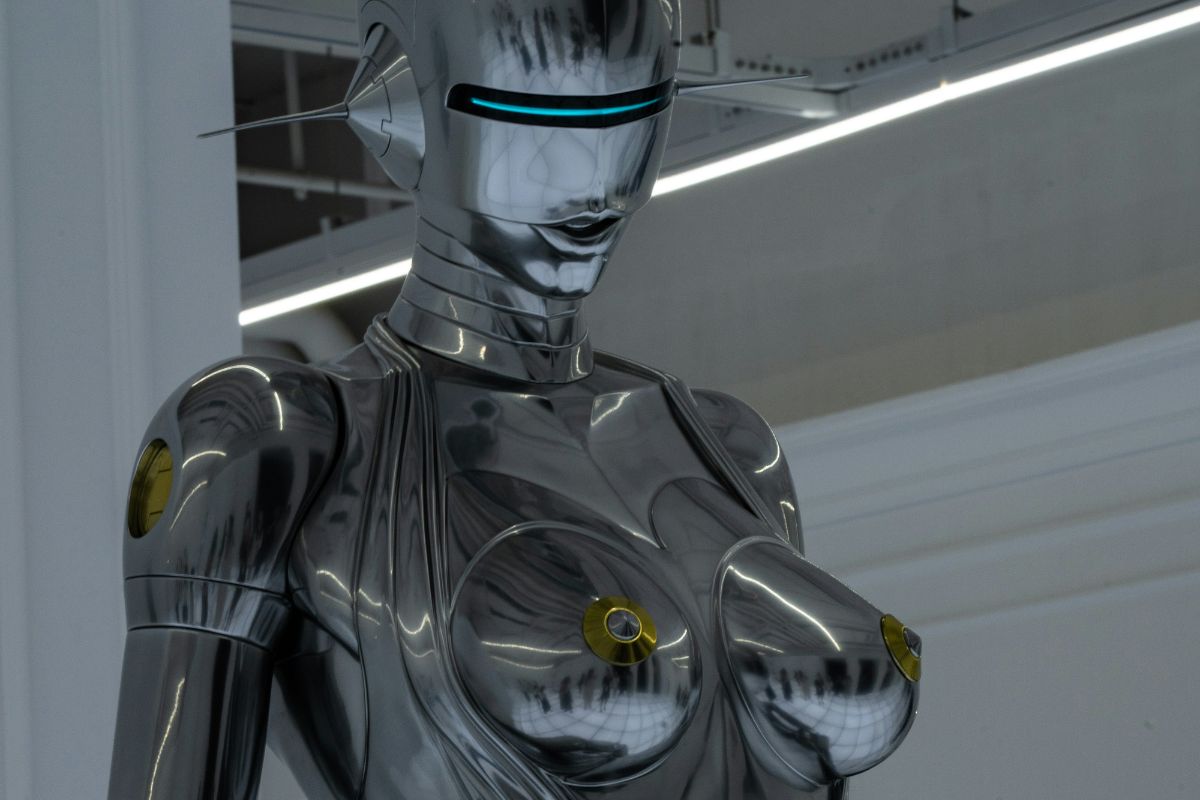In an age where artificial intelligence and virtual reality are reshaping every aspect of human life, the concept of love, connection, and intimacy is undergoing a technological transformation.

The relationship between humans and machines has always been a central theme of futuristic storytelling. From the alluring androids of “Ex Machina” to the soulful AI companions in “Her,” these narratives have probed the possibility of robots becoming our partners: not just in work or daily tasks but also in love and intimacy.
Today, that speculation has moved from the realm of imagination into reality. With advancements in robotics, artificial intelligence (AI), and virtual reality (VR), the boundaries between the physical, the emotional, and the digital are blurring. Companies are developing robots with human-like features and personalities, while VR technology offers immersive environments for erotic experiences.
But what does this fusion of technology and intimacy mean for society? Are robots and VR creating meaningful connections, or are they simply commodifying intimacy? This blog will explore these questions, diving into the role of robotics, AI, and VR in shaping the future of human intimacy.
The Rise of Robotic Companions
Robotic companions are no longer just futuristic fantasies. Developers are designing lifelike robots programmed to interact, communicate, and even respond to emotions. These robots are built with advanced AI systems that enable them to learn about their users over time, adapting their behavior to create a sense of personal connection.
With the ability to simulate affection and companionship, some robots cater to individuals seeking an alternative to traditional relationships, whether due to loneliness, social anxiety, or personal preference.
However, critics argue that robotic companions could deepen social isolation rather than alleviate it. By replacing human relationships with machine-generated interactions, are we losing something essential about what it means to connect on a human level?
Virtual Reality and Immersive Eroticism
If robotics is reshaping physical intimacy, virtual reality is transforming its experiential dimension. VR headsets, combined with haptic feedback devices, now allow users to enter immersive worlds where they can interact with virtual partners or explore erotic fantasies that feel uncannily real.
Virtual adult entertainment apps have turned fantasy into an interactive experience. Imagine being able to walk on a tropical beach with a virtual partner, feel their touch through sensory gloves, and engage in conversations tailored to your preferences. The technology creates a sense of presence that bridges the gap between imagination and reality.
But this raises ethical and psychological questions: How does engaging in virtual intimacy affect real-world relationships? For some, VR offers a safe space to explore desires without judgment, but for others, it risks becoming an escape from the complexities of human connection.
AI and the Emotional Side of Eroticism
Perhaps the most fascinating aspect of this technological evolution is the role of AI in creating emotional bonds. While sex robots and VR experiences focus on the physical or sensory aspects, AI-powered systems delve into the emotional and intellectual dimensions of intimacy.
AI chatbots are designed to simulate friendship, companionship, and even romantic relationships. Users can engage in deep conversations, share their thoughts and feelings, and receive responses that feel empathetic and genuine. For some, these AI systems provide a form of emotional support that rivals—or even surpasses—human interaction.
But how real is this connection? Can an algorithm truly understand emotions, or is it simply mimicking them? And what happens when people start prioritizing AI relationships over human ones? These questions challenge our understanding of love, connection, and authenticity in a digital age.
Ethical and Societal Implications
The intersection of robotics, sex, and VR isn’t without controversy. Critics argue that these technologies risk commodifying intimacy, reducing complex human emotions to programmable interactions. There are also concerns about consent, privacy, and exploitation. For example, who owns the data generated during interactions with a robot or a virtual partner?
Additionally, the rise of hyper-realistic robots and VR environments raises questions about body image and unrealistic standards of beauty. If users can create their ideal partners (perfect in every way) how might this impact real-world relationships and expectations?
On the flip side, proponents argue that these technologies can address unmet needs, offering companionship to those who struggle to form traditional relationships. They also provide a safe space for exploring sexuality, especially for marginalized groups or individuals with disabilities.
Where Do We Go From Here?
As robotics, AI, and VR continue to evolve, the possibilities for intimate technology seem limitless. But with great power comes great responsibility. Society must strike a balance between embracing innovation and safeguarding the values that define human connection.
One thing is certain: the way we think about intimacy is changing. Whether robots and virtual experiences will complement or compete with traditional relationships remains to be seen. What’s clear is that this new frontier offers both exciting opportunities and profound challenges.
Conclusion
The fusion of robotics, sex, and VR is no longer a distant dream, it’s our reality. These technologies are pushing the boundaries of intimacy, offering new ways to connect and explore our desires. But as we venture into this uncharted territory, we must ask ourselves: What do we gain, and what do we lose, when we invite machines into the most personal aspects of our lives?
As with any technological revolution, the future of intimacy lies in how we choose to use these tools. Will we let them enhance our human connections, or will we allow them to replace what makes us human in the first place? Only time will tell.